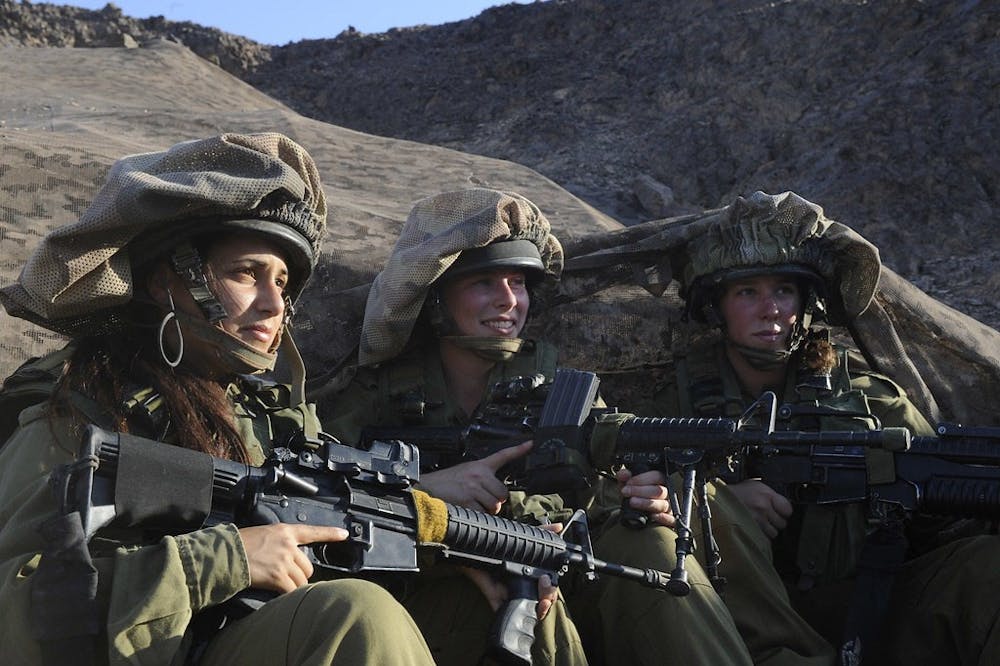
Katie Catterall is a freshman journalism major and writes “In Between the Lines" for The Daily News. Her views do not necessarily agree with those of the newspaper.
War. It’s what the youth of America has known most of their lives. It’s what I have known nearly my whole life with the War on Terror.
As a college student, I should not have to deal with the economic fallout from another war, a potential war with Iran, and neither should anybody else — not to mention the fact that war is immoral.
The belief that war is good for the economy is bolstered by the fact that increased military spending during times of war leads to employment, additional economic activity and adds to the development of new technologies, which can make their way into other industries — but what about after the war?
The temporary economic boom experienced from war, in my opinion, is not worth the economic situation that results after the war. As the government pays for war through debt, taxation or inflation, this affects students like me entering an economy with low growth rate and investment.
Being forced to enter the workforce after graduating college in a poor economy is not a situation I want to find myself in. The Watson Institute for International and Public Affairs, an interdisciplinary research center at Brown University, does research on the economic costs of war and explains how this system of borrowing affects the economy.
“This borrowing has raised the U.S. budget deficit, increased the national debt and had other macroeconomic effects, such as raising consumer interest rates,” the institute said.
The Watson Institute for International and Public Affair isn’t the only expert informing people that war is not ideal for the economy. Former Federal Reserve chairman Alan Greenspan predicted in 1991 the conflict in the Middle East would lead to a poor economy. Greenspan believes instead of spending endless amounts of money on wars, we should invest that money into other areas, such as education and transportation.

And I agree with Greenspan — instead of spending money on these wars, we should be working on improving our education systems, our outdated transportation systems, our crumbling infrastructure and our outrageously expensive healthcare system.
The evidence suggesting war is harmful for the economy is clear when looking at the wars in Iraq and Afghanistan. Despite the Department of Defense’s budget doubling during the 2000s, jobs were created at such a slow pace that it was comparable to when the United States’ unemployment rate was at a high of 24.9 percent under President Hoover.
This clearly shows war does not help the economy. In fact, the Congressional Research Service states the Iraq and Afghanistan wars added over $1.4 trillion to deficits.
It’s not just our economy to consider when talking about the consequences of war, though. We also have to look at the immorality of war and how it destroys countless innocent civilians’ lives, effectively creating more terrorism. Many forget that during World War II, the results of the atomic bomb dropped on Hiroshima killed 135,000 people, and the bomb dropped on Nagasaki killed 50,000 people. In the more recent years, wars with Afghanistan, Iraq and Pakistan alone have killed at least 244,000 people.
What does this all mean for college students like me? It means after graduation, we will be dealing with a high-stress economic situation. We should be investing that money into public services that could benefit the people, because the money that is being drained for pointless wars would instead be invested back into the economy.
But this isn’t just about economics for me; it is about being a decent human being and standing up to say I will not support the slaughter of innocent people in accordance with whatever reason the United States gives for another war.
As college students, we are working hard to achieve success in the workforce. However, that is not possible if the United States keeps choosing to start interventionist wars. I am on the side of the student who is just trying to achieve their dreams, and if that makes me unpatriotic or anti-military, then so be it.
I am on the side of the countless innocent civilians whose lives are destroyed in these endless and pointless wars.
I am on the side of peace.
Contact Katie with comments at khcatterall@bsu.edu.





